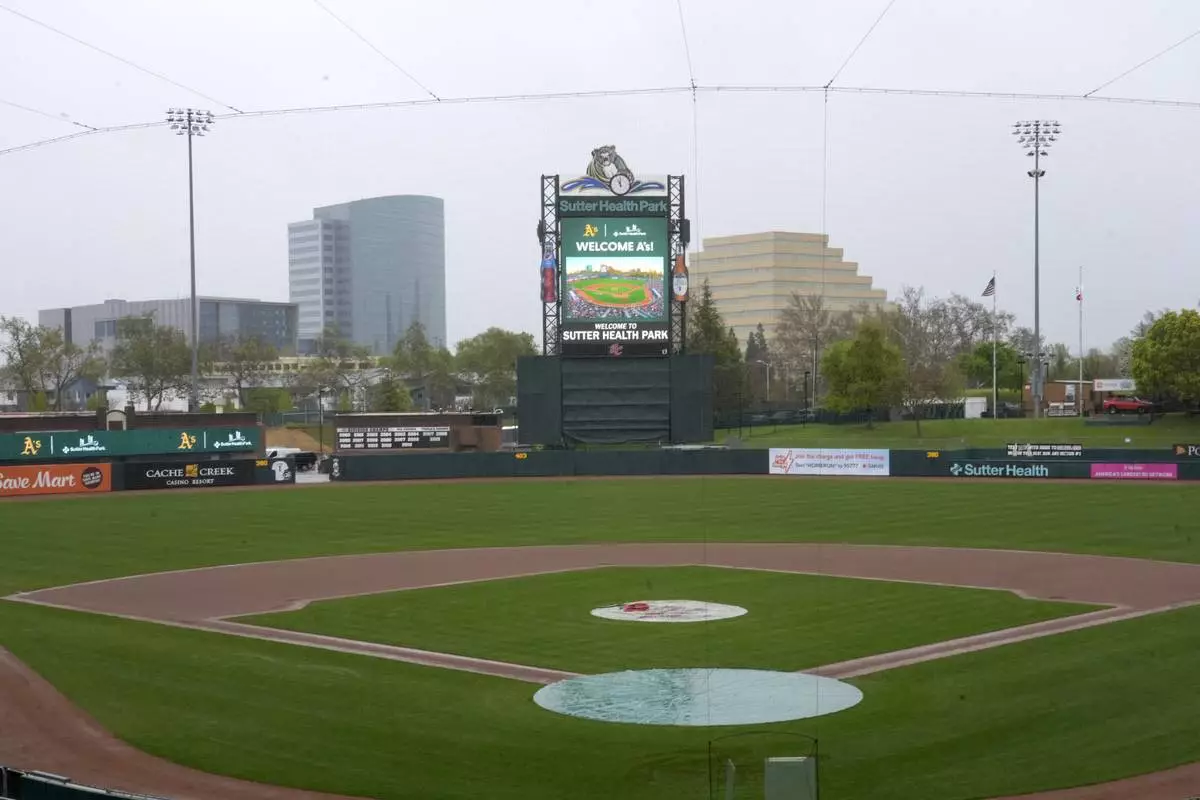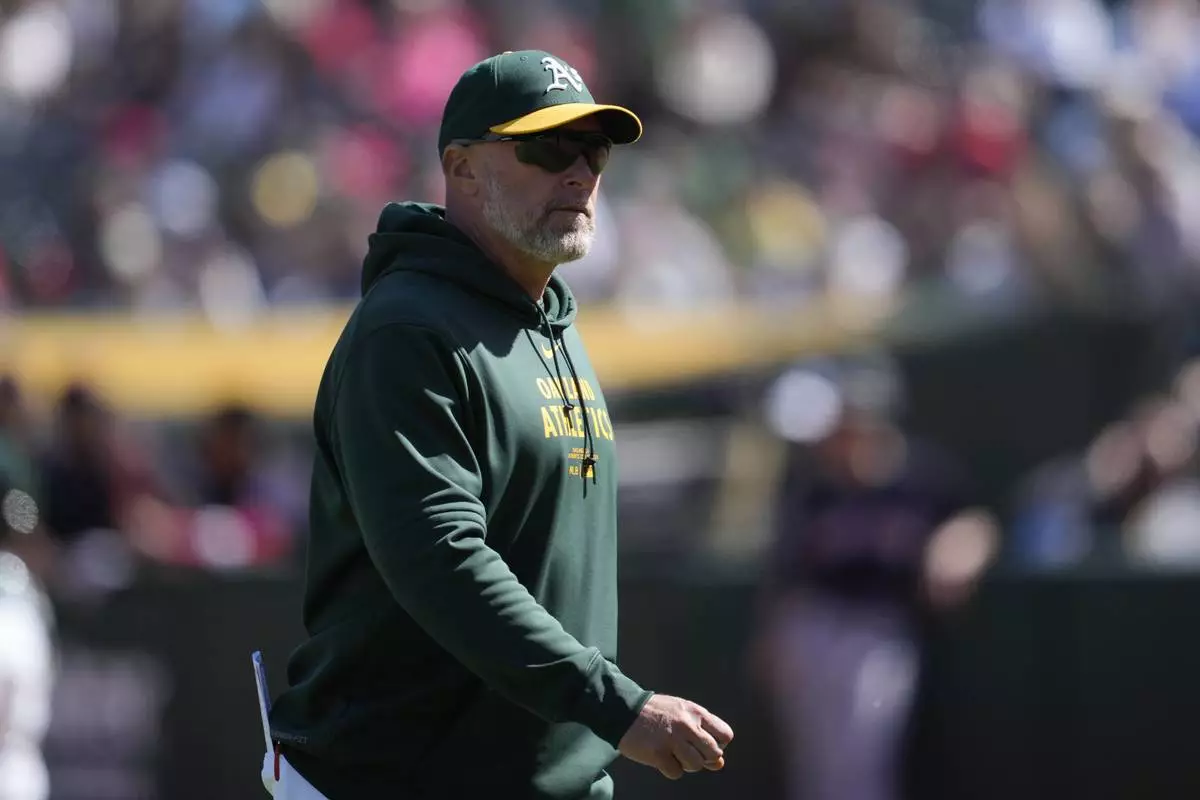While China doesn't want to intervene in the summer-long protests that have shaken Hong Kong, that doesn't mean it won't.
The movement, now in its seventh week, has veered into more dangerous territory on two fronts.
Protesters, who had previously besieged the city's legislature and police headquarters, directed their ire at China itself on Sunday, defacing the central government's official emblem and pelting its building in Hong Kong with eggs. Needless to say, their actions were not well-received in Beijing.
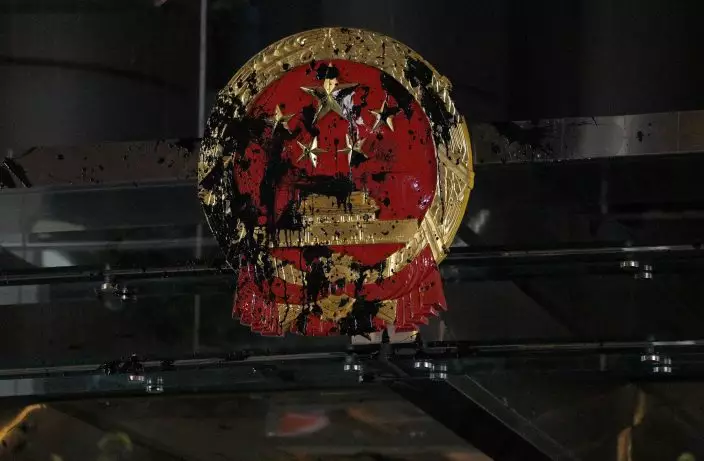
FILE - In this July 21, 2019, file photo, the National Emblem of the People's Republic of China is covered in black paint thrown by protesters outside the Chinese Liaison Office in Hong Kong. China doesn't want to intervene in Hong Kong's protests but that doesn't mean it won't, as protesters escalated their action by defacing the central government’s official emblem and pelting its building in Hong Kong with eggs. (AP PhotoBobby Yip, File)
In an escalation on the other side, a group armed with metal rods and wooden poles beat up anti-government protesters and others inside a subway station late Sunday night. The attack injured 45 people, including a man who remained in critical condition. Beijing supporters had tussled with protesters previously, but not on this scale.
Neither side wants China's People's Liberation Army to step in, but the growing chaos and what China will see as a direct challenge to its authority raise the risks. The thuggish attack on the protesters brought accusations of connivance between police and criminal gangs, though Hong Kong's police commissioner flatly denied it and it remained unclear who was behind it.
Any intervention by China would likely bring international condemnation and could endanger Hong Kong's position as a financial center governed by rule of law. It would also draw comparisons to China's deadly military crackdown on Beijing's pro-democracy Tiananmen protests in 1989, an event the government wants the world to forget.
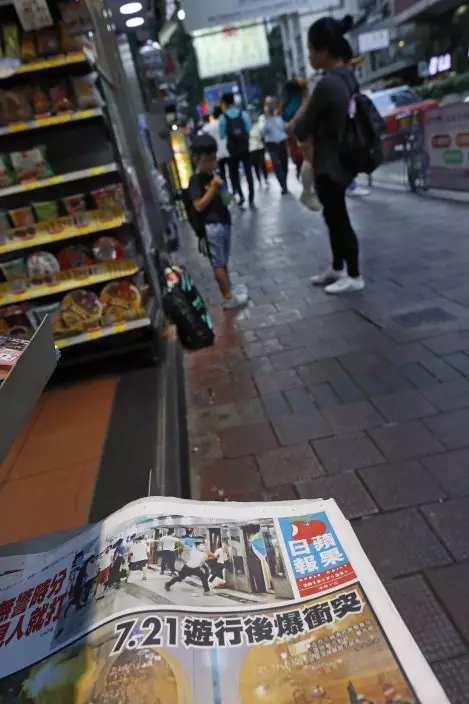
A newspaper front page shows a photo of white shirted thugs attacking commuters at a subway station in Hong Kong at a newsstand on Monday, July 22, 2019. China doesn't want to intervene in Hong Kong's protests but that doesn't mean it won't, as the movement enters its seventh week. (AP PhotoVincent Yu)
For China, it's not just an economic question but also a political one. Hong Kong, a former British colony, was returned to China in 1997 under a "one country, two systems" concept that gives the city a fair degree of autonomy over its affairs. Hong Kong residents have much broader rights and freedoms than mainland Chinese.
The success of the formula is important to China, which wants to use it to bring the self-governing island of Taiwan back under its control. Taiwanese President Tsai Ing-wen is already using the unrest in Hong Kong to argue that "one country, two systems" doesn't work, and a Chinese military intervention would confirm the fears of many Taiwanese.
The best outcome for China would be a de-escalation of the protests and a return to relative normalcy, as happened after the last major pro-democracy demonstrations in Hong Kong, the student-driven "Umbrella Movement" that occupied streets for more than two months in 2014.
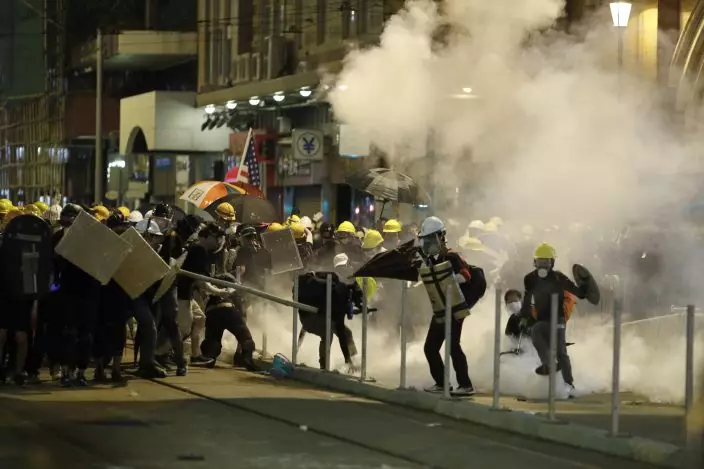
FILE - In this file photo taken Sunday, July 21, 2019, protesters react to teargas as they confront riot police officers in Hong Kong. Hong Kong, a former British colony, was returned to China in 1997 under a “one country, two systems” concept that gives the city a fair degree of autonomy over its affairs, but China may intervene to quell protests now in their seventh week. (AP PhotoVincent Yu, File)
Many of this summer's protesters are Umbrella Movement veterans who were disappointed that those protests failed to bring about change. At least some have shown themselves unwilling to back down this time — but the question is how far they will push, and how far Beijing will let them.
"The problem is that it is not entirely up to the central government," said Zhang Lifan, a Chinese historian and political commentator. "If the radical people in Hong Kong put forward the advocacy of independence, making the situation spin out of control, the central government will certainly intervene."
That is not the most likely outcome, but with no clear way out of the ongoing protests, they could well escalate further, making Beijing more skittish.
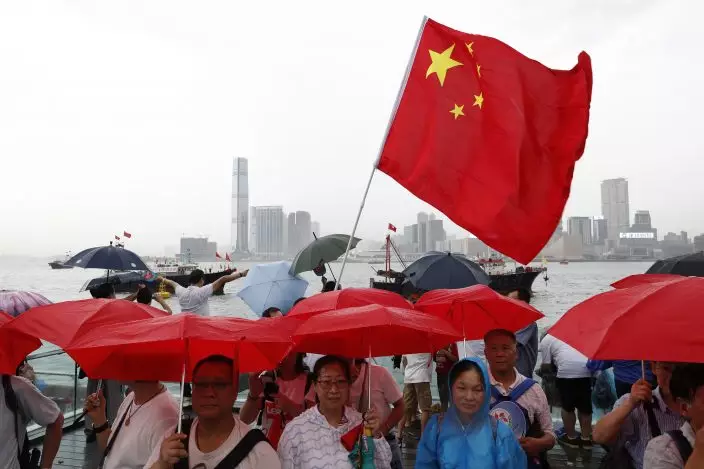
FILE - In this file photo taken Saturday, July 20, 2019, pro-China supporters hold red umbrellas and a Chinese national flag during a counter-rally in support of the police in Hong Kong. China doesn't want to intervene in Hong Kong's protests but that doesn't mean it won't, as the movement enters its seventh week. (AP PhotoVincent Yu, File)
Among the many messages the protesters have taken to spray-painting on walls is "Hong Kong is not China." On one level, it is a statement that Hong Kong has a more independent legal system and greater freedoms than the mainland — the one country, two systems principle.
On another level, it reflects a growing disenchantment with life as part of China, not only political but also economic. An influx of Chinese money is blamed for pushing up real estate prices beyond the reach of many young people. Some demonstrators have carried the Hong Kong flag from the British colonial era at protests.
For China, losing Hong Kong a second time would be worse than a collapse of the one country, two systems model. The pro-Beijing government in Hong Kong last year outlawed a political party that advocated independence for the city of 7.4 million people.
"One begins to wonder whether the Chinese Communist Party wants Hong Kong to descend into chaos, so that it has an excuse to step in, or whether its mismanagement means that such chaos is inevitable," said Kevin Carrico, a senior lecturer in Chinese studies at Monash University in Australia.
The ruling Communist Party values stability above all, a choice it made in deciding to end the Tiananmen protests by force. It has since become a mantra that the stability the party has brought to China has underpinned the country's rise to become the world's second-largest economy, lifting millions out of poverty.
China's stability has come at a price to personal freedoms such as free speech. Under current President Xi Jinping, the party has sought to increase control over society, from religion to social media, in moves that have reverberated in Hong Kong.
Both the Chinese and Hong Kong governments have turned around the protesters' argument that the rule of law is under threat by saying it is the violent acts by some protesters that are threatening the rule of law in Hong Kong.
"At the end of the day, it is the young people who will suffer the most if Hong Kong's prosperity and stability are damaged," pro-Beijing lawmaker Regina Ip said Monday.
Her statement illustrates a fundamental divide over the future of Hong Kong, between a more conservative pro-Beijing establishment focused on stability and economic growth and a liberal youth that feels left out and is clamoring for democracy.
It is the failure to close this divide, in repeated cycles of protests over the years, that keeps nudging Hong Kong and the government in Beijing closer to the tipping point.
EDITOR'S NOTE — Ken Moritsugu, the AP's Greater China news director, has covered Asian issues for more than a decade.





